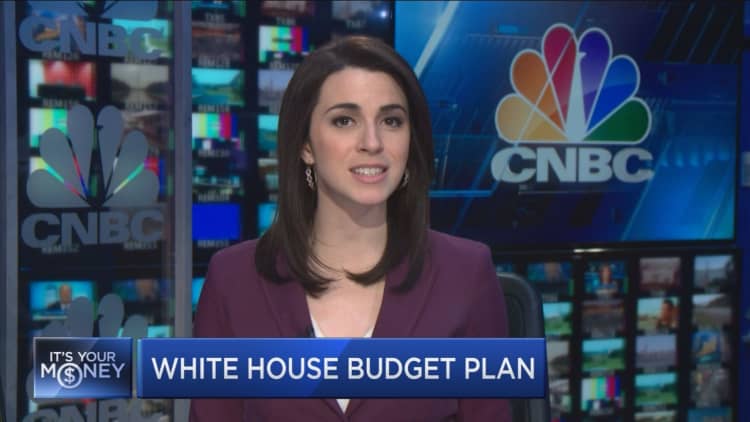The White House is expected to unveil a budget on Monday that does not balance over the next decade, despite optimistic growth projections and deep cuts to discretionary programs, according to several people familiar with the plans.
The administration's budget is supposed to act as a road map for Congress to begin crafting spending legislation for the next fiscal year. It also serves as a messaging document that lays out the president's priorities and fiscal principles.
For Republicans, that has traditionally meant ensuring the federal budget eventually balances — that government spending does not exceed revenues by the end of the traditional 10-year budget window. But the administration abandoned that philosophy in its budget last year and plans to do so again this year, the people said.
Over a longer horizon, however, the White House budget will eliminate the deficit, according to a senior administration official. The official said the process would take 15 years.

"Congress keeps sending the President massive spending bills larded up with fat, but this administration will continue to aggressively attack wasteful spending so we can get back to balanced budgets," he said.
The revenue shortfall over the next decade is particularly notable because the White House budget is also expected to project the economy will grow at an annual rate of 3 percent, higher than many private forecasts. But achieving 3 percent growth has become a mantra within the administration, with officials arguing the expansion is being fueled by the Republican tax cuts.
The deficit would also persist despite the administration's plans for steep cuts in discretionary programs outside of the Defense Department. In an op-ed last month, Acting Budget Director Russ Vought said the administration will seek a 5 percent cut to all other federal agencies.
But his piece left unclear whether those cuts would be based off current spending levels or some other amount. The administration official said the 5 percent cut would be calculated from the cap on spending for this fiscal year.
The spending limit — also known as the sequester — is part of the Budget Control Act. According to the official, the spending reductions in Trump's budget will allow them to hit the sequester levels for fiscal year 2020. If Congress does not vote to lift the spending caps, the sequester will automatically take effect.
In his op-ed, Vought said the White House will preserve defense funding by funneling money into an account for overseas contingency operations, which is not covered by the spending caps. The new money is expected to total close to $174 billion — more than double the current tally, according to sources.
Conservatives have previously derided the account as a "slush fund," including Mick Mulvaney, former White House budget director and now acting chief of staff. In his op-ed, Vought suggested the administration had run out of options.
"As long as Congressional Democrats insist on demanding more social spending in exchange for continuing to fund defense spending, expanding the use of OCO funds remains the administration's only fiscally responsible option in meeting national security needs while avoiding yet another increase to the spending caps," he wrote.

